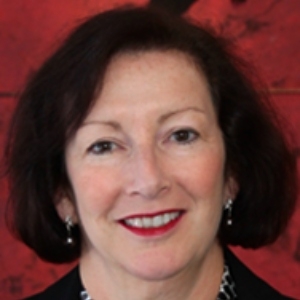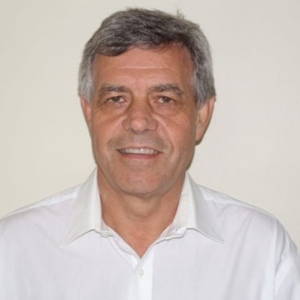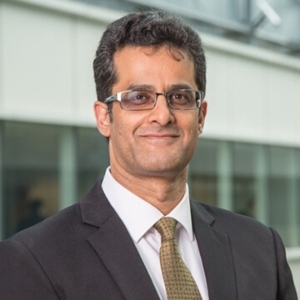Connect with Us
602 Park Point Drive, Suite 225, Golden, CO 80401 – +1 303.495.2073
© 2025 Medical Affairs Professional Society (MAPS). All Rights Reserved Worldwide.
Since its publication in the Journal of Therapeutic Innovation & Regulatory Science in July, the article, “Promoting Best Practices for Medical Science Liaisons Position Statement from the APPA, IFAPP, MAPS and MSLS,” has garnered plenty of attention with over 4000 hits to date. In recognition of the discussions that this paper was generating and a strong appetite by the Medical Affairs community to learn more, the lead authors of APPA came together to explain how these recommendations translate in practice and to provide an opportunity to answer burning questions from the field. Regional in flavour, the webinar was attended by 258 professionals from industry and its supporting partners across Asia and Australia. Using the large volume of questions submitted to the panel as a metric for audience engagement, the event was deemed a huge success with a clear indication that conversations (re)visiting the role of an MSL have only just begun!




Here we recap some of the key themes that were discussed:
Building a foundation through a unified voice
The need for a peak body-led guidance on the role of the MSL was driven by the recognition of the variation in how this function is currently defined by different companies both locally and internationally. This was coupled with an emerging trend of ‘hybrid’ roles that blur the line between medical and commercial activities. By providing a collective best practice position, MAPS, IFAPP, APPA and MSLS hope that industry finds this framework useful when shaping the future role and responsibilities of the MSL to ultimately support patient outcomes.
“It’s really all about improving patient outcomes and improving standards of care.” Victoria Elegant
Creating an identity in an evolving landscape
Not only has the number of MSLs or field medical advisors grown considerably in the past decade (APPA has seen its members increase from 50 to 600 in this timeframe), so has the role. The MSL of today can wear many hats. This broad scope in function is driven in response to an evolving healthcare ecosystem that is becoming increasingly innovative, technology-driven and patient empowered. There are now many more stakeholders and partnerships to foster, as well as digital platforms to consider in establishing new connections or ensuring continuity in existing relationships.
“Our role isn’t just going to be about scientific exchange and insights gathering. It’s also going to be about partnerships that we have developed in the healthcare system to support evidence generation activities.” Ajay Tiku
While the MSL is expected to pivot to the changing environment, their core skills should remain in place, which is to be a scientific expert who distils data, interprets its relevance to clinical practice and identifies gaps through a thorough understanding of the disease, patient journey and treatment landscape. Notwithstanding this, the MSL should demonstrate business acumen and strategic insight to contribute to the bigger picture of the organisation’s mission, objectives, and goals. This could help elevate the medical offering and demonstrate their value add. Maybe the way forward could be for the medical and commercial teams to work as equal partners in developing scientific and marketing strategies.
“We are seeing trends that are shifting away from a traditional field medical role into a more strategic role that requires greater skill sets, and that needs to understand the broader business.” Paul Theron
Raising the bar and defining what success looks like
While there are several medical affairs’ courses available, there is no standardised, universally recognised, curriculum-based course for supporting development of MSLs or aspiring MSLs. This is a major gap that threatens the calibre of people that enter and remain in the profession. As part of their commitment to supporting the professional growth of its members, APPA is currently exploring the possibility of developing an accredited course through a collaboration between universities, pharmaceutical peak body organisations and affiliated networks.
“The number of people that are trying to get into the MSL role is through the roof. To be able to have something for them would be invaluable.” Matthew Britland
Nevertheless, an investment in building capability of field medical is happening across the region. Companies are spending time in developing greater dialogue and discussion around talent management and career progression. Given that the role and responsibilities of the MSL can vary from company to company, metrics for assessing an individual’s performance also vary.
Currently there are no standard qualitative or quantitative measures that is universally adopted, although the number of clinicians on the MSL’s portfolio, the number of interactions per month and the level of engagement with the scientific messaging are commonly used indicators. Some companies are also integrating patient-focussed metrics into KPIs.
“If we are developing and delivering value, particularly to healthcare professionals, and patients, they’ll feel it and want to engage with us.” Matthew Britland
To expand on these themes and to listen to more discussions on best practices, click here to watch the webinar.
The Innovate article series highlights the ideas of Medical Affairs thought leaders from across the biopharmaceutical and MedTech industries. To submit your article for consideration, please contact MAPS Communications Director, Garth Sundem.
602 Park Point Drive, Suite 225, Golden, CO 80401 – +1 303.495.2073
© 2025 Medical Affairs Professional Society (MAPS). All Rights Reserved Worldwide.

 Medical Affairs Mind Reading: The Difference Between Presentation and Conve...
Medical Affairs Mind Reading: The Difference Between Presentation and Conve...